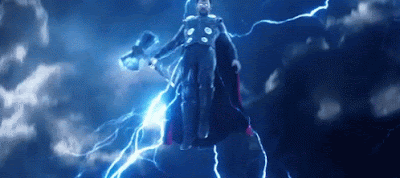First off, Google+ was the social media platform of a media giant; so being there felt something like having our own cable network. We were sending (and receiving) across an immense public sphere. Of course, this wasn't a universal sentiment or our beloved G+ would still be; but for those of us in the tabletop world it felt like we were broadcasting to a substantial chunk of the hobby, because we almost certainly were.
Imagine being in Time's Square on New Year's Eve. More on that bit later...
But its reach, even among the gaming set, went far beyond the hobby - and tabletop enthusiasts weren't the only ones using the platform. Its home feed could be a window on the world (remember that 90s promise?) depending on what you followed. Mine was a motley assortment of news, tabletop gaming, and music. From the tragic death of Tom Petty to the 2016 presidential election, Google+ kept me in the know. I get that all social media makes this possible; but G+ did it on a bigger scale, or so it seemed.
Google+, for all its supposed failures, succeeded at being an immense and public facing phenomenon, the social-media equivalent of a personal cable network. Now I can see legions of online types waiting to quote figures and demonstrate where I'm objectively wrong about (insert _______ here). But this post is about my feelings and experiences with the platform, something largely immune to objective analysis, even if I'm wrong.
But perhaps the best way to express the experience of Google+ is to look at what happened in the wake of its demise. At first everyone pitched their best alternative and made for the escape pods. And it's not like there wasn't lots to choose from. But quite a few of us made it MeWe, including those who didn't originally want to go. The migration was big enough that the new landlords had to make accommodations, which speaks well for them, but also to the enormity of the move itself. And it absorbed only some of the refugees!
MeWe isn't a wealthy tech giant, and its passion for privacy means that it's more intimate (and insular) than Google+ ever was. That's a two-edged sword. My circles are smaller, but also stocked with authentic friends, something I'm immensely grateful for. The friendships started on Google+ were the most valuable things there. But as a person who enjoys feeling connected to a larger public, I miss the sheer reach of my former home and its "one stop shopping" atmosphere, which brings us back to the whole New Year's analogy...
So it's New Year's Eve in Time's Square. People are everywhere, and it's easy to get whipped up by the crowd. It's a noisy, festive event; and if you're standing in the right place at the right time, you just might show up on TV. But your friends are there too, forming intimate little clusters, familiar eddies in a fast-moving stream. MeWe is more like a small gathering in a friend's apartment - and there's nothing wrong with that.
But Google+ was a veritable Camelot for tabletop gamers. A massive, thriving kingdom that spoke to the public at large. It benefited greatly from the sheer number of voices and the ease of which new ideas and products could be disseminated. Bloggers and publishers alike could spread their respective wings and reach an impressive audience. This was good for the game publishers, obviously; but ours is a hobby that needs new products as well as fresh ideas, and Google+ absolutely enabled this unprecedented creative economy...
Which is to say: the Google+ era was special, and Robyn and I are both immensely glad for the five years we got to be part of it. And we've held on to the best parts...
I don't say this because it's over, but because it's in recovery. There's no squelching the creative urge, and that goes double for gaming. The same voices that made Google+ such a great community are alive and well in new online homes. History shows us that kingdoms don't just fall. They also rise from the ashes. For a decent chunk of us, MeWe could be a pit stop along the way or the start of a new golden age. History (and gaming) goes on...


